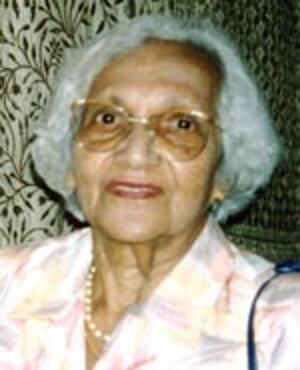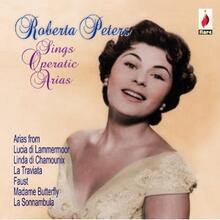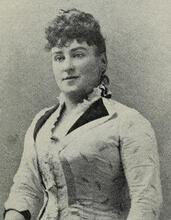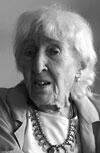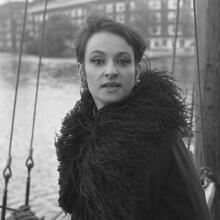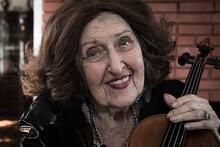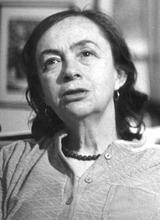Ruby Daniel
Ruby Daniel was born in 1912 in the ancient Jewish community of Cochin, India. She moved to Israel in 1951 and spent the rest of her life in kibbutz Neot Modekhai. In her youth, Daniel developed a keen talent for storytelling, and her gifts only expanded as she achieved to higher levels of education. In her book Ruby of Cochin, written in collaboration with anthropologist Barbara C. Johnson, Daniel exhibits a lyrical descriptive style combined with humor and outspoken social criticism. Her book endures as a significant contribution to Jewish history and ethnography, written from the unique perspective of a single woman of strong spirit, intelligence, wit, and dignity who prevailed over economic and social challenges to celebrate and preserve the culture of her community.
Background, Early Life, and Education
Ruby (Rivka) Daniel lived for more than half of her life in A voluntary collective community, mainly agricultural, in which there is no private wealth and which is responsible for all the needs of its members and their families.kibbutz Neot Mordekhai in the Upper Galilee, but her book Ruby of Cochin: An Indian Jewish Woman Remembers richly illuminates Jewish life in Kerala, a green land of tropical abundance and religious tolerance on India’s southwest coast. Born in December 1912, Daniel spent the first half of her life in the ancient Jewish community of Cochin, where she developed her gifts as a compelling storyteller. She was the first Jewish girl who left the neighborhood to continue her education, and the first to complete high school and attend college. After working as a government clerk and serving in the Indian Navy, she was among the first in her community to make Lit. "ascent." A "calling up" to the Torah during its reading in the synagogue.aliyah, in 1951, and to join a kibbutz. She was also the first Cochin Jewish woman to write a book.
Ruby Daniel was the eldest child of Eliyahu Hai Daniel (d. 1934) and Leah Japheth Daniel (1892–1982). Her father sold tickets for the ferry boat linking the island of Cochin with the mainland city of Ernakulam, a job her mother took over after his early death. Ruby was profoundly influenced by her maternal grandparents, Eliyahu and Rivka (“Docho”) Japheth, with whom she and her immediate family lived. (Her paternal grandparents died before she was born.) Grandmother Docho loved stories and was an acknowledged expert in Malayalam Jewish songs, which she sang and taught to other women in Cochin. She passed on to Ruby her keen memory and her stories and songs. Grandfather Eliyahu Japheth was a shohet and a self-educated scholar of Jewish texts, who worked as a commercial agent for one wealthy Jewish family and taught Hebrew to the sons of another. Ruby had two younger siblings: Bingley (1921–1992), who made aliyah in 1954 and worked and lived with his family in Dimona, and Rahel Kala (“Royal”, b. 1932), a member of Kibbutz Neot Mordekhai.
From early childhood Ruby Daniel was an excellent student, both at the local government school for girls and at the Jewish school where she studied Hebrew, Torah she-bi-khetav: Lit. "the written Torah." The Bible; the Pentateuch; Tanakh (the Pentateuch, Prophets and Hagiographia)Torah, and the synagogue liturgy every morning and afternoon. It was her mother Leah who insisted on sending her for higher education to St. Theresa’s Convent School in Ernakulam, pawning a gold chain in order to pay the fees. She completed high school there and studied one year at St. Theresa’s College, dropping out only to help support the family when her father and grandfather died in the same year. Ruby Daniel never married. Part of an early generation of poor but educated working women in Kerala, she was employed for over fifteen years in government service, as a clerk in the High Court, District Court, and Munsiff Court, and from 1944 to 1946 in the Women’s Royal Indian Navy.
Publication of Ruby of Cochin
In her book Ruby of Cochin, written in collaboration with anthropologist Barbara C. Johnson, Daniel exhibits a lyrical descriptive style combined with humor and outspoken social criticism. She recounts historical events, legends, and magical stories about the Jewish past in Kerala, describing in detail the elaborate Jewish festivals and the everyday intimacy of life on the one long street in Cochin called Jew Town, home to three of the eight Kerala Jewish communities. The Daniel/Japheth family were part of the Paradesi community, dominated by the so-called “white” Jews. The family belonged to a section of that community who for many years were denied equal rights in the synagogue because of a controversy over their ancestry. Indeed, part of Daniel’s motivation in writing the book was to “set the record straight” about this controversy. The book also includes an account of her aliyah and life in a predominately Jews of European origin and their descendants, including most of North and South American Jewry.Ashkenazi secular kibbutz, where she again met with social discrimination. Maintaining her religious observance and her Indian cuisine and cultural style, she was a hard-working and proud participant in the life of Neot Mordekhai, working for more than 40 years in the kitchen and laundry.
Between 1982 and 1999, Daniel translated into English about 120 Malayalam-language Jewish women’s songs, thirteen of which are included in her book. Her translation efforts laid part of the groundwork for an ongoing international project to translate and analyze the songs.
Legacy
Until the publication of her book in 1995, Daniel’s talents remained largely unrecognized outside the circle of her family and friends in the Cochini community. That year her kibbutz honored her with a reception, and she was a featured guest at the Israel Museum’s grand opening of the exhibit “The Jews of India,” where she served as a panel discussant. Though she did not originally intend to write about her own life, she came to realize: “It is important for people today to know what happened before they were born, to know about the lives of ordinary women … wildflowers who bloom in the forest. Nobody sees them and they fade” (p. xiv).
Ruby Daniel died on September 23, 2002, and is buried in Neot Mordekhai. Her book will endure as a significant contribution to Jewish history and ethnography, written from the unique perspective of a single woman of strong spirit, intelligence, wit, and dignity who prevailed over economic and social challenges to celebrate and preserve the culture of her community.
Selected Works by Ruby Daniel
“Memories of a Cochin Jewish Woman.” Manushi: A Journal About Women and Society 67 (1991):30–37.
“We Learned from the Grandparents.” In Four Centuries of Women’s Spirituality, edited by Ellen Umansky and Dianne Ashton, 298–304. Boston: 1992.
“More Memories of Cochin Jew Town.” Bridges 7,1 (1997–1998): 39–42.
With Barbara C. Johnson. Ruby of Cochin: An Indian Jewish Woman Remembers. Philadelphia: 1995.
Johnson, Barbara C. “‘Bold Enough to Put Pen on Paper’: Collaborative Methodology in an Ethnographic Life Story.” In Gender and Race through Education and Political Activism, edited by Dena Shenk, 125–143. Arlington, VA: 1995.

